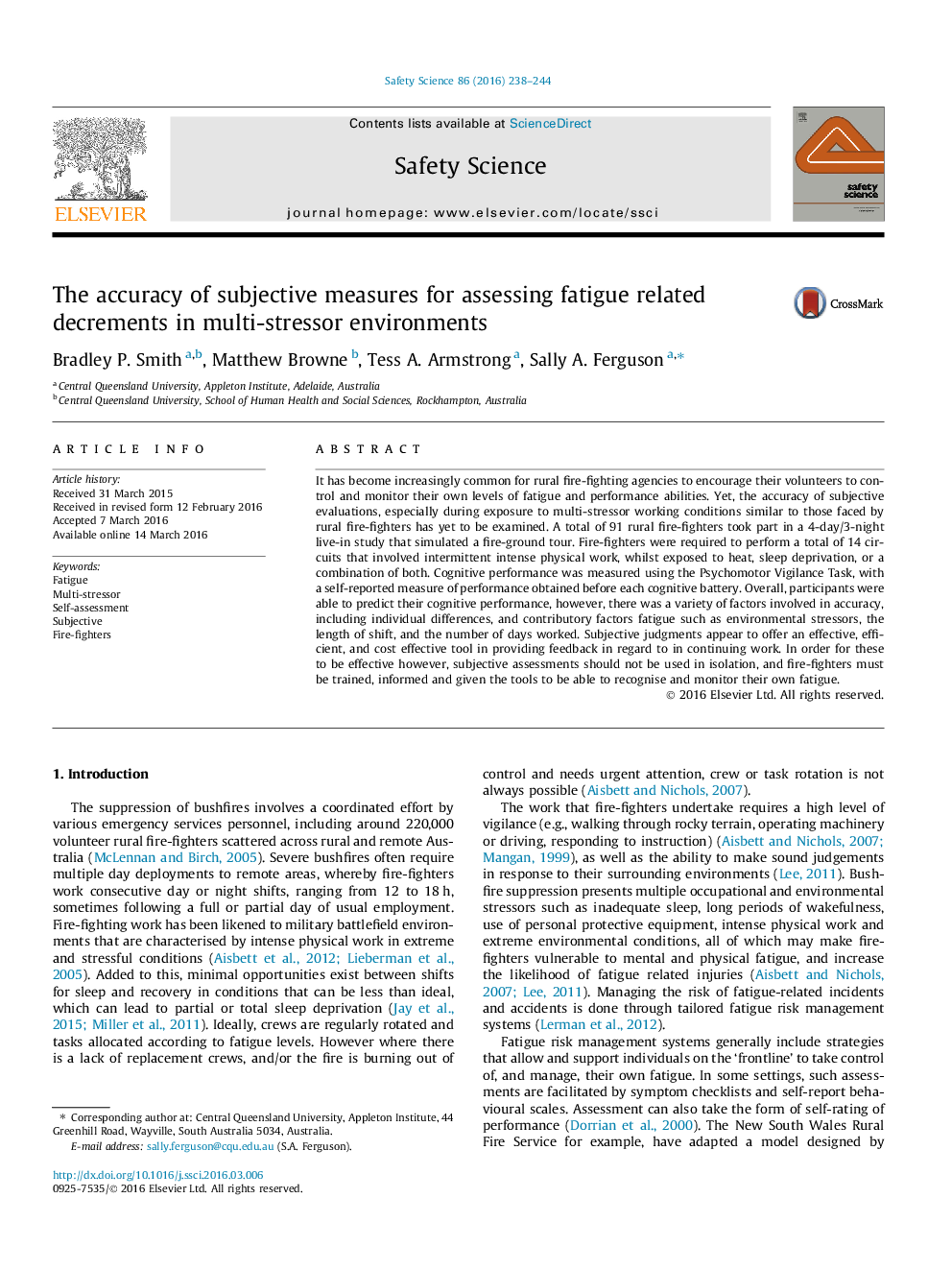| Article ID | Journal | Published Year | Pages | File Type |
|---|---|---|---|---|
| 6975389 | Safety Science | 2016 | 7 Pages |
Abstract
It has become increasingly common for rural fire-fighting agencies to encourage their volunteers to control and monitor their own levels of fatigue and performance abilities. Yet, the accuracy of subjective evaluations, especially during exposure to multi-stressor working conditions similar to those faced by rural fire-fighters has yet to be examined. A total of 91 rural fire-fighters took part in a 4-day/3-night live-in study that simulated a fire-ground tour. Fire-fighters were required to perform a total of 14 circuits that involved intermittent intense physical work, whilst exposed to heat, sleep deprivation, or a combination of both. Cognitive performance was measured using the Psychomotor Vigilance Task, with a self-reported measure of performance obtained before each cognitive battery. Overall, participants were able to predict their cognitive performance, however, there was a variety of factors involved in accuracy, including individual differences, and contributory factors fatigue such as environmental stressors, the length of shift, and the number of days worked. Subjective judgments appear to offer an effective, efficient, and cost effective tool in providing feedback in regard to in continuing work. In order for these to be effective however, subjective assessments should not be used in isolation, and fire-fighters must be trained, informed and given the tools to be able to recognise and monitor their own fatigue.
Related Topics
Physical Sciences and Engineering
Chemical Engineering
Chemical Health and Safety
Authors
Bradley P. Smith, Matthew Browne, Tess A. Armstrong, Sally A. Ferguson,
